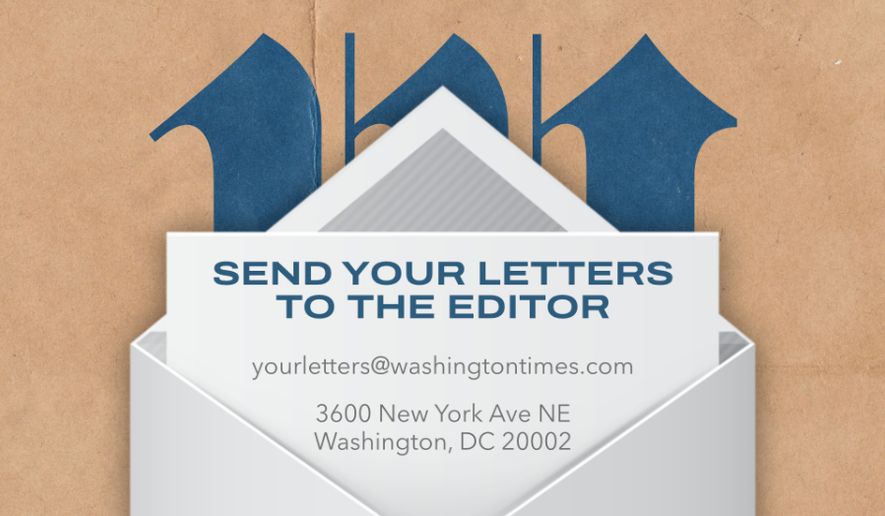OPINION:
I hope the Supreme Court will keep several points in mind as it considers the appeal of the Colorado Supreme Court decision to keep former President Donald Trump off the state’s primary election ballot (“Trump case offers study of the 14th Amendment; compares Jan. 6 riot with Civil War,” web, Feb. 6).
First, while it is true that Section 3 of the 14th Amendment does not require a conviction to be applicable, the authors of that provision certainly had in mind the provisions of the Confiscation Act of 1862 (“An Act to suppress Insurrection, to punish Treason and Rebellion, to seize and confiscate the Property of Rebels, and for other Purposes”).
There is no such legislation applicable to the Jan. 6, 2021, riot at the Capitol, and it is significant that neither Mr. Trump nor any of the rioters was convicted or even indicted on a charge of insurrection or giving comfort to the enemies of the United States. Should political and media charges of insurrection be sufficient to take away someone’s rights without due process? I think not.
Second, the drafters of Section 3 had a prima facie means of applying it: Any federal or state official who had taken an oath of allegiance to the Constitution and then served in the national or a state government under the Confederacy was automatically subject to it.
For example, a federally appointed postmaster in Alabama who stayed in his job under the Confederacy was subject to it.
I have seen estimates that over 150,000 people had their rights suspended under Section 3. There is no practical, fair test for trying to use Section 3 now.
Third, Section 3 did provide an escape hatch: A two-thirds vote by each house of Congress could remove the disability. Thousands appealed to Congress to have the disability removed. Within four years of the ratification of the 14th Amendment, reconciliation between the North and South had progressed, and the overreach of Section 3 — which prevented many qualified people from serving in federal or state positions — was recognized. With the General Amnesty Act of 1872, the disqualification was removed for most of those who had been subject to it, and Section 3 practically became a dead letter. We should not have to go through this experience again because of Jan. 6.
In sum, there is ample legal and political reason for the Supreme Court to overrule Colorado and other state efforts to remove Mr. Trump from election ballots. I hope the justices agree unanimously.
CLARKE N. ELLIS
Bethesda, Maryland




Please read our comment policy before commenting.